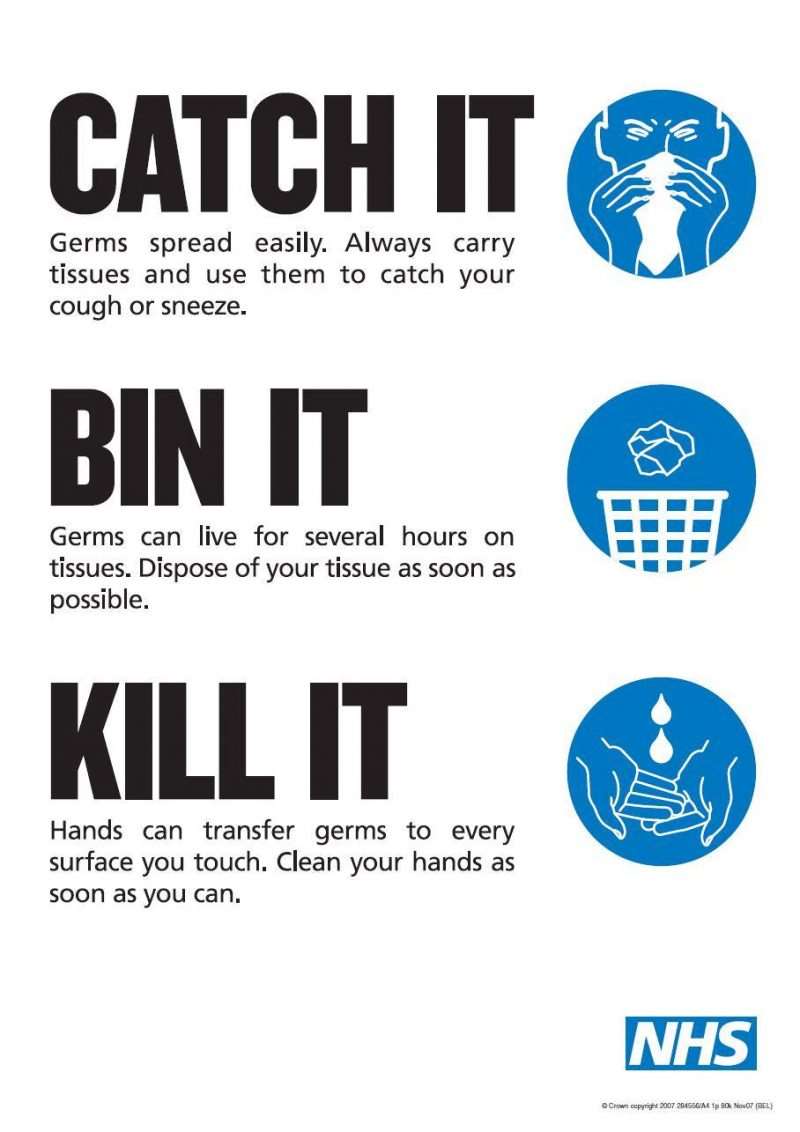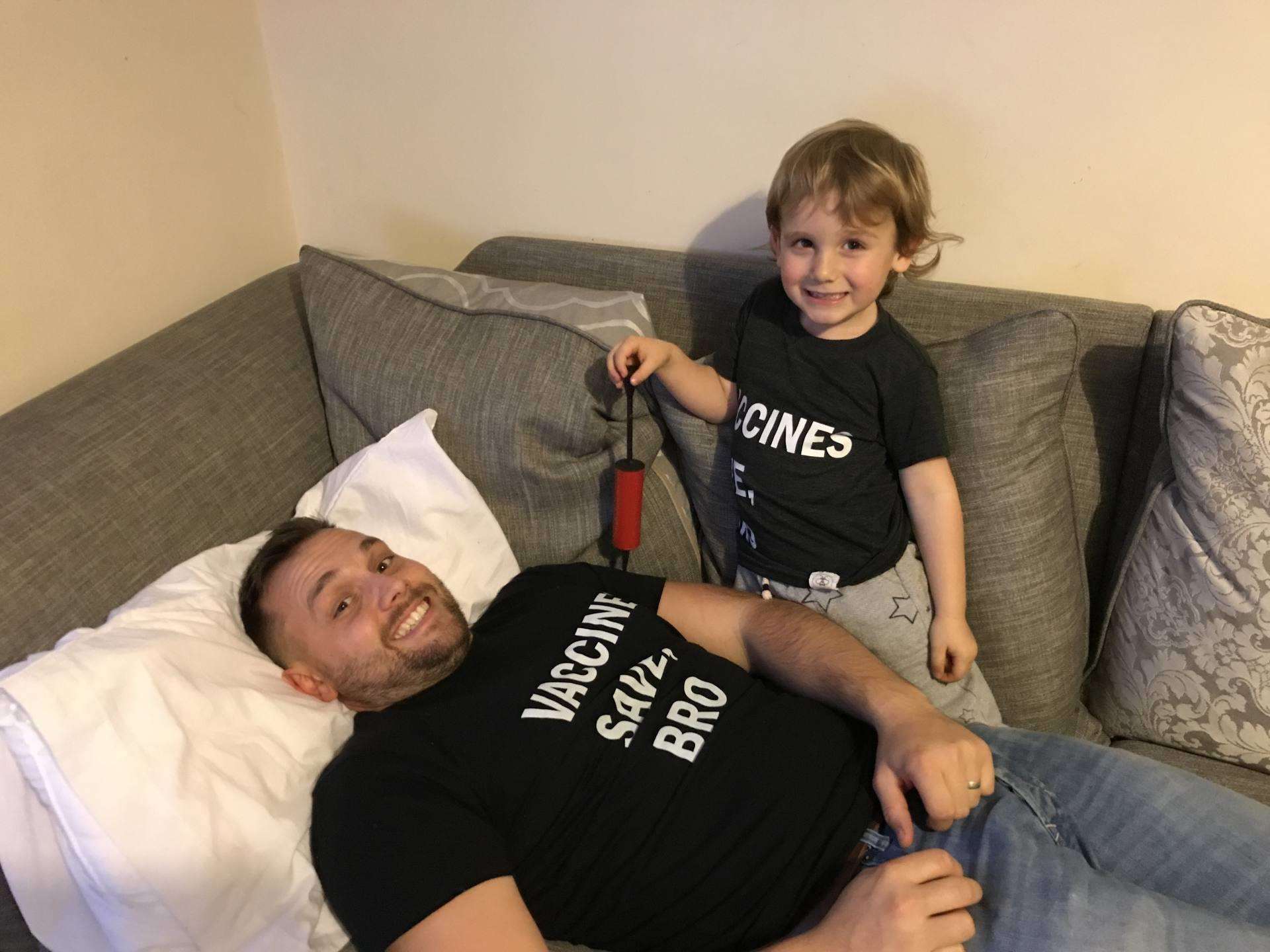*This post is sponsored by Pfizer
Ted and I were playing in the bedroom one afternoon. He was walking across a path of pillows he’d made on the floor and he slipped.
He hit his head on our chest of drawers, about 30cm from where we were standing.
It was a very small fall but the impact must have been great because seconds later he was in Jen’s arms, bent double and unconscious. His eyes rolled to the back of his head. He was completely unresponsive. He then stopped breathing.
Jen started screaming hysterically. After 10 seconds without breath, feeling more like 10 minutes, he started to breathe. Then he started to fit. His entire body violently shaking in Jen’s arms. He couldn’t speak, he was white as a sheet, his eyes were glazed and continued rolling back to the back of his head. He started making strange sounds and became very hot and sweaty.
I called 999.
Jen ran into the street with him in her arms. He was still unable to move, speak or open his eyes. Within 5 minutes an ambulance was at our door. Two amazing paramedics took over and looked after Ted incredibly well. They talked us through everything they were doing and did their best to reassure and comfort Jen at the same time.
Ted had to go straight to A and E. We were terrified. But the whole children’s A and E team were fantastic.
Apparently, the impact caused such pain that he struggled for breath and lost consciousness. Amidst that, the accident caused his temperature to soar which caused the seizures.
Without question, this was the most terrifying event in my life. Even now, a year later, I find it extremely difficult to think about. All I know is that I am incredibly grateful for the NHS and their awesome staff.
The reason I’m sharing this is to try and give a bit of context as to why we feel how we do towards getting Ted vaccinated. Seeing Ted in the arms of a paramedic, seeing him laying in a hospital bed, watching on helplessly is not an experience I ever want to repeat. I want to do everything and anything I can to protect my children. To keep them safe. To keep them well and healthy. I know that vaccinating children splits opinions but for us, it’s the right thing to do for our children.
Although we wish we could wrap our children up in cotton wool or bubble wrap, the fact of the matter is that we can’t. There are dangers and there are risks. But we want to minimise those risks as much as possible. Part of the problem with this is that there is so much unknown to the average parent, like me. That’s why it’s important to do the research and make the right decisions for you and your children.
We’ve recently been made aware of some facts & stats about Meningitis and we wanted to share them with you.
- Meningitis, though rare, can progress from initial symptoms to death within 24 hours!*
- Up to 1 in 5 adolescents and young adults can carry the bacteria that leads to meningitis.**
- Usually, people carry the bacteria without it causing any symptoms.
- Early symptoms can be hard to tell apart from cold or flu.
- There is no single vaccine that helps to protect against all of the most common strains of meningococcal bacteria (which can cause meningitis) in England.
- Several vaccines are available; these include Men ACWY and Men B vaccines.
- Treatment for meningococcal disease is with antibiotics. However, even when diagnosed early and antibiotic treatment is started quickly, death and severe consequences are still possible.
It’s a scary thought and this post isn’t designed to scare anyone – but merely raise awareness of how serious Meningitis is. Jen, what with her huge anxiety issues, doesn’t need any encouragement to think the worst. But for us, there are things we can do that will help reduce the risk of the worst happening.
-
Being aware
It’s the first step to making an informed decision about whether or not to vaccinate your children. There’s a lot of opinions out there, but you need to listen to facts before opinion so that you can reach your own conclusion.
-
Get Vaccinated
I know there are some who will strongly disagree with this, but in my mind, you can’t argue with it. Do I want Ted to contract Meningitis? Flu? Chicken Pox? Tetanus? Diphtheria? No, I don’t. So it makes sense to vaccinate him against them.
-
Don’t share personal items
Common social behaviours and environmental factors can promote the spread of the bacteria. Things like drinking out of the same cup, sharing snacks etc. Have you seen this poster from the NHS? It’s the same principle.

-
Get Prompt Treatment
I’m terrible at this – my personality is that of someone who will just wait an extra 12 hours to see if it gets any better. So it’s a good job that Jen is the opposite and will be calling the doctor as soon as she becomes worried. Between us, we make a good team, but the message is simple, if you have any suspicion of any symptoms at all, call in and get treatment ASAP.
Vaccinations are a personal decision that each set of parents should discuss carefully among themselves. For us, it’s a no-brainer. I want to protect my children (and others) from these diseases. The severity of what could happen should a child pick up something like Meningitis is a risk I’m not willing to take.
Please don’t hesitate to ask us some questions in the comments below. We’re always happy to hear other viewpoints and encourage respectful discussion on what can be an emotive topic.
* World Health organization. Meningococcal meningitis. Factsheet 141. Available at:
http://www.who.int/mediacentre/factsheets/fs141/en/ Last accessed May 2017
**Christensen H, May M, Bowen L, et al. Meningococcal carriage by age: a systematic review and metaanalysis.
Lancet Infect Dis 2010;10(12):853-861.







